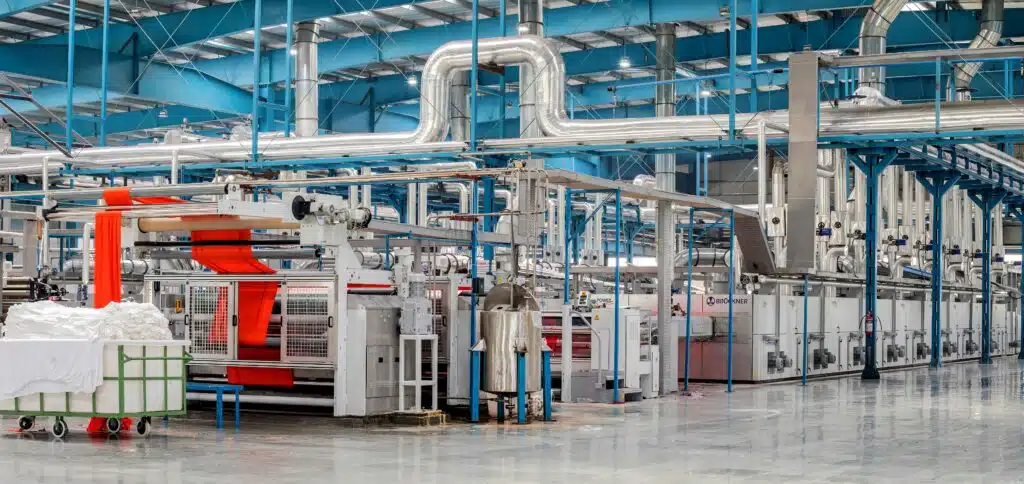
The 7000-hour rule is a legal provision in Germany that provides relief from high grid fees for electricity-intensive companies. According to this regulation, companies whose facilities operate for at least 7000 full-load hours per yearare entitled to reduced grid charges.
Additionally, a minimum annual consumption of 10 GWh is required. Full-load hours are calculated by dividing the annual electricity consumption (in kWh) by the maximum load peak (in kW).
This regulation is particularly relevant for companies with high electricity intensity, meaning their electricity consumption exceeds a certain proportion of their gross value added.
For companies operating in energy-intensive industries—such as metal processing, chemicals, or glass manufacturing—grid charges can represent a significant cost factor.
The 7000-hour rule offers these companies an opportunity to significantly reduce their energy costs. Thanks to the reduced grid fees, businesses can remain competitive while keeping their operating expenses under control.
To apply the 7000-hour rule, companies must provide proof that their facilities reach at least 7000 full-load hours per year and have a minimum annual electricity consumption of 10 GWh. This is demonstrated using regular operational and consumption data.
Full-load hours are calculated by dividing the annual electricity consumption (kWh) by the maximum load peak (kW).
The reduction in grid charges is tiered:
At 7000 full-load hours, grid charges are reduced to 20% (an 80% reduction)
At 7500 full-load hours, they are reduced to 15%
At 8000 full-load hours, the charges drop to 10%
| Description | Values |
|---|---|
| Annual energy consumption | 15 GWh |
| Maximum peak load | 2,100 kW |
| Electricity price | €0.15/kWh |
| Capacity price | €160/kW |
| Full load hours | 7,142 |
| Regular grid charges | €2,586,000 |
| Reduced grid charges (20%) | €517,200 |
| Savings: | €2,068,800 |
Let’s assume a company has an annual electricity consumption of 15 GWh and a maximum peak load of 2,100 kW. The electricity price is €0.15 per kWh and the demand charge is €160 per kW. Without the 7000-hour rule, the grid fees would amount to €2,586,000 per year. If the grid fees were reduced by 80% by applying the 7000-hour rule, the annual costs could be reduced to €517,200, which means a saving of €2,068,800.
The full load hours in the example are 7,142. If the peak load increases by 43 kW, the company falls out of the 7000-hour rule. A single load peak can lead to the company falling out of the regulation. If you are just below the 7000 hours, the capping of load peaks by battery storage can mean that the regulation can be used.
– Cost savings: Reduced grid fees lead to considerable cost savings. This is achieved by calculating the grid fees based on the actual use of the grid infrastructure. For companies, this means that they only pay for the grid infrastructure that they actually use, which leads to significant savings, especially when capacity utilization is high.
– Competitiveness: Lower energy costs improve competitiveness. Companies that can reduce their energy costs have a clear advantage over their competitors. Lower operating costs make it possible to offer products and services at more competitive prices and to invest in other business areas.
– Planning security: Clear regulations offer companies security in their financial planning. With the 7000-hour rule, companies can plan and budget better as they know that they will benefit from reduced grid charges under certain conditions. This creates financial stability and facilitates long-term investment in the company’s development.
Battery storage systems can help companies meet the requirements of the 7000-hour rule by smoothing peak loads and increasing energy efficiency.
By using battery storage, companies can ensure that their facilities operate continuously, even during grid fluctuationsor load peaks.
1. peak load management: avoidance of grid overloads and reduction of peak loads. Battery storage systems can store energy and release it when needed to balance peak loads. This helps to optimize grid utilization and avoid overloads that could lead to higher grid charges.
2. emergency power supply: Ensuring continuous operation in the event of grid faults. Battery storage systems can serve as an emergency power supply and minimize downtimes. This is particularly important for production processes that require a constant power supply.
3. energy efficiency: storage of surplus energy for later use. Surplus energy produced during periods of low demand can be stored and used later when demand is higher. This improves overall energy efficiency and reduces the need for expensive grid energy.
– Metal processing industry: Continuous operation of melting furnaces and rolling mills.
– Chemical industry: Continuous supply of reactors and production plants.
– Glass production: Constant energy supply for melting and forming processes.
– Automotive industry: Securing production processes and charging infrastructure for electric vehicles.
– Food industry: Stable energy supply for cold chains and production facilities.
– Data centers: Reliable energy supply for servers and data processing equipment.
The 7000-hour rule offers electricity-intensive companies an effective way to reduce their grid charges and thus achieve considerable cost savings. The use of battery storage systems can help to meet the requirements of this rule and at the same time increase energy efficiency and security of supply. Companies should use the potential of battery storage to optimize their energy costs and remain competitive.
For more information on implementing battery storage and using the 7000-hour rule, please contact us. Get a free consultation now and optimize your energy supply.
[1] MVV Energie AG. (2023). 7000-hour rule: No additional financial burden for electricity-intensive companies. URL: https://partner.m
https://www.bmwk.de/Redaktion/DE/Downloads/klimaschutz/3-impulsvortrag-1-ag-sitzung-01-06-2023.pdf?__blob=publicationFile&v=4
Nutzen Sie die Förderung für Stromspeicher in Sachsen-Anhalt, um Ihre Betriebskosten zu senken und in eine effiziente Energiezukunft zu investieren. Lassen Sie uns Ihr Projekt gemeinsam angehen.